Ramprasad Tripathi was one of the best concrete pipe salesmen of the country. He could sell corners like no one else. He used to tell his customers that his middle name was ‘Anukool’, which meant ‘perfect fit’, and that every pipe he sold to his customers would be a perfect fit. He would not laugh at his joke, but beam widely while waiting for the joke to sink into the customer’s head. This way they never forgot his name. If he noticed that the customer’s eyes were lingering over the price sheet, he would smile a small smile (a large one would expose his silver tooth and the glint might scare off some customers. Damn those Hindi movies where villains had glinting metallic teeth. He was no villain. He was the best salesmen of Reinforced Concrete Pipes and he was not giving up), and he would take out a small steel flask from his bag.
“Pipe is a pipe!” He would say, “Let us have a cup of hot adrak chai first!”
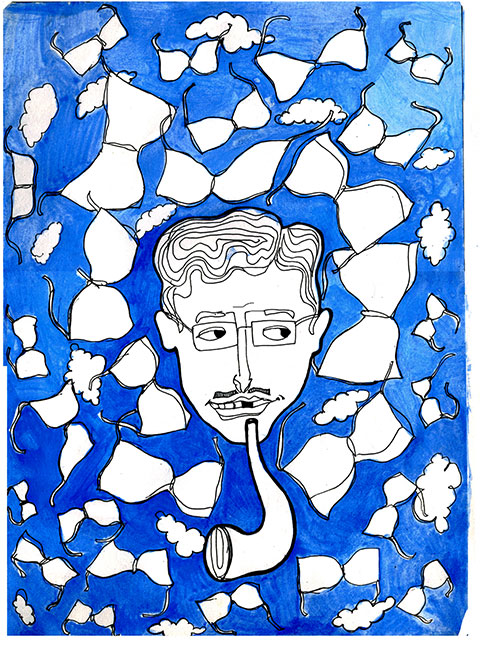
As the customer watched him pour fragrant tea into the plastic disposable cups he would always carry with him, Ramprasad would launch into his favorite part of the job: persuading customers to see the advantage of concrete pipes over the high-density polyethylene pipes that had come into the market (with fancy colors and the promise of easier transportation). And he would always, always walk away with the customer in the bag.
He wasn’t a tall man, but he wasn’t short either. He had been blessed with a thick head of hair and the size of his glasses matched the thatch on his head. Without his glasses he couldn’t see very well. He used a black comb with a Doraemon sticker (a gift from his niece who knew that blue was his favorite colour, and Doraemon was blue) to keep his mop in some order. And a white hanky to wipe the lenses of his glasses clean. He liked the pants Sadanand tailor made for him. He had five pairs: two brown, two military green, and one cream (they looked nice with his brown shirt). He was happy with two, but mother insisted, and he realised that he was travelling more and more these days, and he could not wear travel weary pants. His mother made sure his second set was washed, ironed and ready for him to take to his next assignment.
He had tried marriage. Briefly. His wife was very pretty. His mother had loved her like a daughter, buying her nice things, taking her to cinema and shopping, even cooking for her. But the trouble was, she had not anticipated that Ramprasad would be travelling for twenty days in a month. He had tried to make up for his absence by buying inner things for his wife a couple of times (women’s magazines stressed on gifting of such stuff), but she had found that scandalous, so he had stopped. Sexually starved, the young woman had turned to her childhood friend (who would visit often in his home) and finally, with his mother’s blessings, had run away with him. He was upset, because he now had two butterflies to stare at in his very home. But with his wife gone, he was free to watch women’s butterflies without feeling guilty.
‘Titli daboch li maine…’ His phone sang. He looked at his never-say-die Nokia and answered. It was his boss. He was going to be given the best salesman award and he was to fly to Delhi to receive the title from the visiting chairman of the American Concrete Pipe Association. How he used to read up everything they did each time he visited the neighborhood Internet shop, though he admitted that Mrs. Malhotra’s butterfly peeking from the edge of her blouse had almost everything to do with why he visited the shop and sat at the computer closest to her.
This fascination with butterflies had started when he was eight or nine years old. When he hugged his mother, his face had brushed against the fat white strap of her bra poking out of her blouse, and he had tugged at it. His mother had slapped his hand playfully, calling him naughty. He had asked her what it was, and she had laughed and said, “Titli!” And ever since that day he knew he was enslaved by the sight of this white butterfly which would hide under her blouse. A butterfly, which when tugged would earn him a playful slap and laughter from his mother who would call him naughty.
Most people grow up and forget things that fascinated them in their childhood. Not Ramprasad. Everywhere he went—in the market, to his office, in the bus, in trains—there were butterflies to spot. Most were hidden under clothes, but Ramprasad learnt to watch the bra straps carefully. If he spotted the outline of the bra in a blouse, or a salwar kameez or in a t-shirt, his eyes would glaze over and he would picture himself as the saviour of butterflies, suffocated by the clothing these women wore. Layers upon layers of fabric, he knew, were surely hampering his beloved white butterflies from fluttering in the breeze.
He could not understand why women obsessively tucked the glorious, happy strap end back in. They would do this quickly, surreptitiously, so as to not attract any attention, then pretended to adjust their dupattas or blouses. He would have to stop himself from giving in to this urge of telling them to let the white strap be. He had learnt his lesson well.
When he went out on dates as a young man, he was distracted by the white bra strap more than he was by the girl’s eyes, or hair, or neck or figure like other boys of his age were. Girls liked his quiet intensity and he was happy to take them to the movies. They even let him put an arm around their shoulders. He never saw the fantasies on the silver screen. He was taken by the white bra strap, hidden under the clothes. If the girls were uncomfortable with his thumb caressing the bra strap they did not say much. After all, that was harmless. Other boys just scrambled to squeeze their breasts in the dark. He was involved in a fantasy that had eternal summer blue skies and white butterflies and a parade of women with white bras worn over their clothes.
And today, he was going to Delhi. There he would receive an award from the head of the American Pipe Association, who was traveling all the way from the headquarters at Irving, Texas, U.S.A. He was in the long queue of people travelling from Gwalior to Delhi. The air-conditioning at the airport wasn’t working, so people stood in the queue, fanning themselves. Ramprasad was happiest when it was summer. Women wore white: Chikankari kurtas, white dupattas with salma sitaras that winked at him, white shirts and white tees, each hiding a bra with straps, just waiting for him to notice.
Thwack!
The loud slap resounded throughout the airport. People froze in their places for a millisecond. Then, it was as if everything was plunged into chaos. He was being hauled away by airport security. He tried to tell them that he had done nothing wrong. He had worked really, really hard to have reached where he was, the best salesman ever.
“You should be arresting that lady! Listen to me! She murdered butterflies! She murdered butterflies!”
They dropped him, only to tie him to the nearest chair.
“She did what?”
“She murdered the butterfly!” Tears rolled down his eyes, misting his glasses, “She murdered butterflies!”
“What nonsense is that?”
“I’ll prove it to you.”
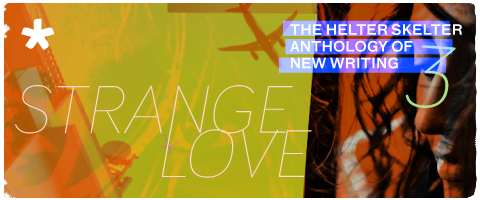
The large-ish lady was brought to the room from the line. She looked upset. She was itching to slap him again, that’s what her expression said.
“Murderer!” He put all the hatred he felt in that one word.
“What is this mad man saying?” The lady looked frightened.
“See for yourself! Look what she has done!” Ramprasad wanted to be heard, so he pointed to her shoulder. A policewoman checked the woman’s shoulder, found nothing. No butterfly. Nothing.
“Can’t you see? You morons!” He was screaming and crying again, “See what she has done to the poor defenseless butterfly. She stitched it up! Murderer!”
“What is this mad man talking about?”
“The butterfly… the butterfly of the bra strap! She stitched it!”
“Bra strap is a Butterfly?” The policewoman and the fat lady realised what he meant at the same time.
Ramprasad was sobbing now. Between sobs, he would whimper, “Murderer.” The airport police did not understand if he was plain crazy or a sinister molester of women. The fat lady was released.
Ramprasad was still handcuffed to the chair when the flight for Delhi was called.







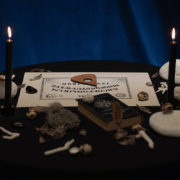
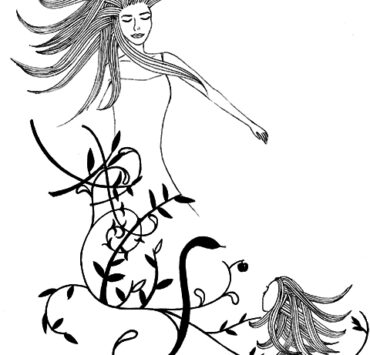
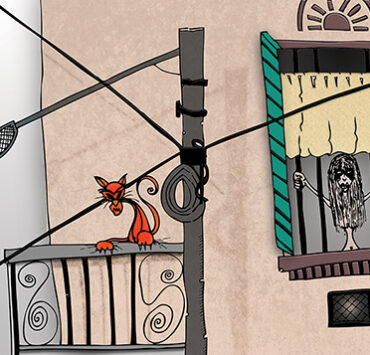

This is really nice. I just wanted to ask one peculiar (it might seem so) question. Why only ‘white’ straps/butterflies? Especially when you are calling them butterflies and the insect is known for its myriad colours. Sorry, it just struck me.:) But I honestly enjoyed reading this piece.
for Sriti: until a little while ago, only maidenform bras were available, esp in small towns. this is a grown man, and his mother would wear white bras, straps to be tucked in with a swift movement of nimble fingers… (remember hindi films where the villain were wont to yanking the hero’s sister’s blouse and violating her purity by exposing the white bra?)